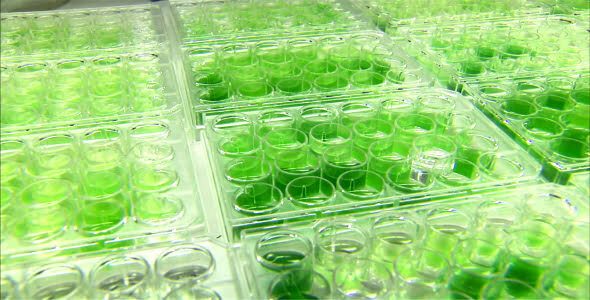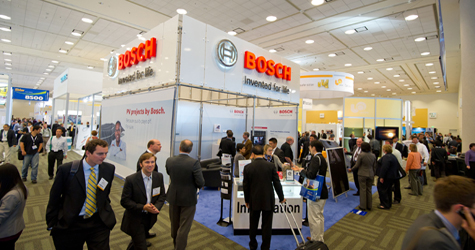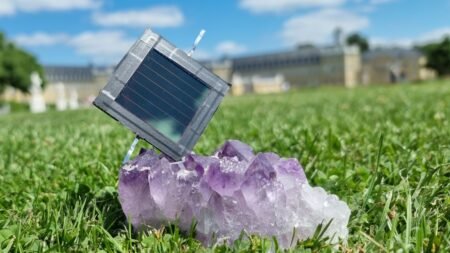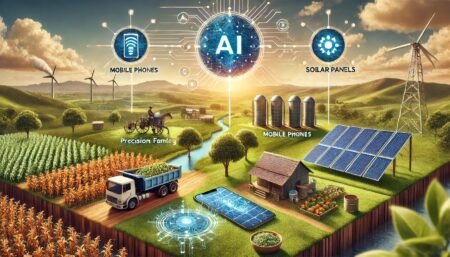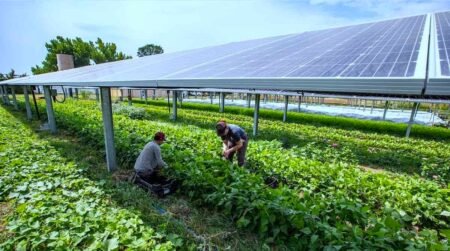Forget electric. Forget petrol. Forget diesel. The future of car fuel lives in our algae, and a meeting of British and European minds is paving the way to get us there through the ‘All-Gas’ project.
Co-funded by the EU’s 7th Framework Program, ‘All-Gas’ has moved on from its 2011 beginnings to hit new heights. As a result of the efforts of Europe-leading private water management company, Aqualia, which is owned by the citizen services group FCC and by the Australian ethical fund IFM Investors, the project now hosts the world’s first full scale and largest algae biofuel factory.
Growing at a rapid pace, Aqualia’s algae alternative is now four times more productive than other biofuels, bioethanol from sugar cane and palm oil biodiesel. To put this achievement into perspective, the project can now sustainably power 20-25 cars from just one hectare of algal cultivation.
With Aqualia’s algae-powered fleet of vehicles going the extra mile (with 4 vehicles having completed each over 40,000 miles – more than once around the earth), the project has set its sights on further success – none of which would have been possible without the research and support of British scientist, the University of Southampton’s Professor Charles Banks.
British Minds & European Results
An Emeritus Professor within Engineering and Physical Science at the world-leading University of Southampton, a member of the prestigious Russell Group, Prof. Charles Banks pioneered the project at its foundations.
“My research interests have evolved during my career in the area of innovative technology for environmental protection.”
Banks continues: “With All-Gas led by Aqualia, I am delighted to see how my initial research has transformed into a large scale demonstration of sustainable productions of bio-fuels based on low-cost microalgae cultures using municipal wastewater.
A truly amazing feat by a global collection of experts, I am honoured to be representing Britain on the world stage as a pioneer of alternative biofuel technology for the future.”
Frank Rogalla, Director of Innovation and Technology at Aqualia, remarks: “Prof. Banks initial research was ground-breaking, and a fantastic example of the innovation currently being undertaken by the British science and technology sectors.
Our aim with All-Gas was to achieve the highest possible degree of sustainability and efficiency in wastewater treatment, and to offer a more productive and alternative biofuel solution.”
With current technology, wastewater treatment involves high energy needs – to treat all of Europe’s wastewater with conventional methods, it would take two 1000 MW nuclear powerplants. Conversely, there is only minimum reuse of the energy and nutrients that wastewater could provide – up to 2 kwh/m3.
But algal cultivation offers the opportunity to revolutionise the current wastewater treatment paradigm: what had, until now, been considered an undesirable by-product is now a valuable resource.
Rogalla continues, “We have worked hard to make All-Gas the success that it is – but there is still much to be done. We currently operate on a 2 hectare site, treating wastewater of 10 000 people. Our mission now is to expand the project commercially and transform global transport with this futureproof biofuel alternative.”
Step-By-Step to Algae Power
Operating out of the beachtown of Chiclana, Andalucía, Aqualia’s step-by-step approach involves a full chain of processes, beginning with cultivation of algal ponds from wastewater. The algae biomass is separated from clean water, harvested and digested, together with wastewater solids, in order to produce biogas and CO2. Biomethane is then purified to a downstream biofuel, and finally, compressed to serve as vehicle fuel (CNG).
Now producing an energy returned on energy invested (EROI) level of around 4:1, Aqualia’s All-Gas project trumps competing biofuel solutions, since corn ethanol operates on an EROI level of only close to 1.
Not only does All-Gas offer the opportunity to power up to 25 cars per hectare through algae biofuel, but it also saves the electric power up to 20 households, by avoiding the cost and impact of traditional wastewater treatment.
With the wastewater produced yearly in the UK this efficient biofuel production process could power more than 260,000 vehicles, neutralising the carbon footprint of over 300,000 people1 ,
Full Throttle Ahead for Algae Power
Pioneering British research, coupled with the resources and expertise of All-Gas’ various partners, led by Aqualia, have now resulted in a remarkable development – we are on the cusp of sustainable biofuel success.
Spearheaded by cost-efficiency and cutting-edge, sustainable technology, algae biofuel now offers a realistic alternative for the masses. Never mind electric, algae will be the future of transport.



